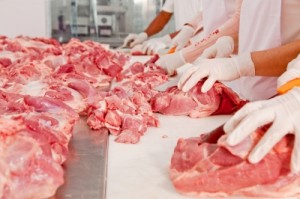Teys Australia’s chief executive says the wage structure of the manufacturing industry belongs to another era.

“Many in the industry still operate in tally-type systems that were invented when the shearers stood around the ‘Tree of Knowledge’ at Barcaldine,” says Brad Teys, chief of the Brisbane-based meat processor in an interview published on ABC Rural.
Teys’ sentiment, that the cost of labour makes the country uncompetitive, is the recurrent theme in the Australian food industry. This follows Simplot’s announcement last week that it plans to close its plants in Bathurst, New South Wales and Devonport, Tasmania.
The announcement comes after a six month review of Simplot’s supply chain operations in the vegetable category. In its statement Simplot said the threat of closure is “due to unsatisfactory financial returns arising from a very competitive food industry environment and unsustainably high costs associated with manufacturing in Australia.”
Australia currently has the third highest hourly wage in manufacturing after Denmark and Switzerland, according to a 2012/13 study from the International Labour Organization.
Teys said the structure of labour costs in Australia must be examined in the light of stiff competition from US and Brazil.
“You know, labour costs obviously are very high in this country. I mean a boner or a skilled person in our business probably earns $30 per hour. If you look at overseas countries like the US, it’s likely to be more $12 an hour. It is very difficult for us to compete,” Teys said.
According to Teys, by the time an animal is boxed and ready for sale in Australia it already costs around $300, while the process would only result to a value of about $150 in the US, and between $110 and $115 in Brazil.
The US is placed at 11th on the ILO study, while New Zealand and Brazil are at the 17th and 28th spot respectively.
Meanwhile, apart from wages, Tony Mahar of the National Farmer Federation (NFF) says there are other costs to be considered along with Australian primary producers’ reputation for high quality.
“We need more flexibility to take into account such things as seasonal harvesting and peak times in agriculture when employment demands increase and for businesses which need short-term staff,” says Mahar who is NFF’s general manager on policy for trade and economics.
“Perhaps there are consequences there that are beyond agriculture and implications for other industries. Those sort of direct interventions we need to examine and make sure we are doing the right thing and not have negative impacts on the broader agriculture or beyond that.”




















